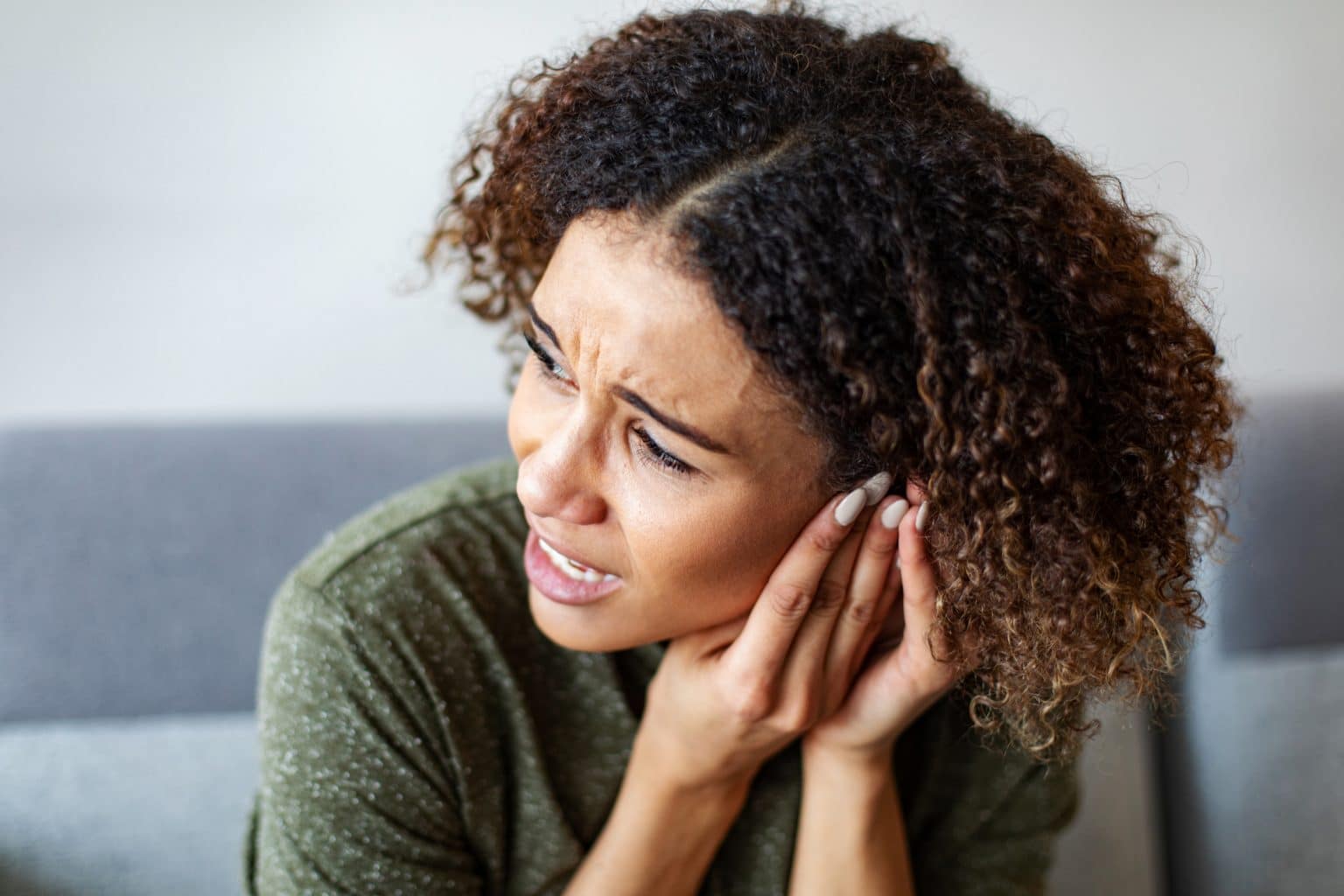At some point in your life, you’ll probably experience some sort of ear drainage. While some types are normal, others could indicate a medical problem. We review the different types of ear drainage, the causes and how it can be stopped below.
Types & Causes of Ear Drainage

Some types and causes of ear drainage include:
Earwax
Earwax is a substance that is naturally produced by the ear canal. Its job is to trap dirt, bacteria and other debris as well as keep the ear canal lubricated to prevent irritation. Healthy earwax may be white, yellow or brown; the darker your earwax, the older it is. In some cases, earwax can mix with other substances, like water, and appear runny.
Earwax only needs to be removed by a professional if it becomes impacted. Symptoms of impacted earwax include feeling of fullness in the ear, ear pain, ringing in the ears (tinnitus) and hearing loss.
Clear Fluid
Clear fluid that drains from the ear is usually just water. You’re most likely to experience this type of drainage after showering, bathing or swimming at Florence Family Aquatic Center. It’s important to dry your ears after these activities by tilting your head to let the water run out, using a towel or running a hair dryer on the lowest, coolest setting to prevent an infection known as swimmer’s ear.
You should see a doctor right away if this type of drainage occurs following a head injury or if it persists more than 24 hours.
Blood
There are several possible causes of blood coming from the ear.
It could be from a minor injury or superficial scratch within the ear canal. In this case, you should only notice a small amount of blood.
It could also be caused by a ruptured eardrum. Symptoms of a ruptured eardrum include ear pain, tinnitus and hearing loss.
Again, seek medical attention if you experience bleeding from the ear following a head injury or if it persists.
Pus
If there is pus coming from your ears, this is likely a sign of infection. An infection can occur in either the outer or middle ear.
A middle ear infection is known as otitis media. People often develop this type of infection during a cold, flu or allergies. If the infection persists beyond the symptoms of your infection or allergic reaction, this may indicate the infection is bacterial, in which case antibiotics may be necessary. Small children who experience chronic otitis media may need ear tubes to be placed.
Stopping Ear Drainage
The best thing you can do to stop drainage from the ears is to see an ear expert at ENT & Allergy Specialists – Ear Nose and Throat Physicians and Surgeons. For more information or to schedule an appointment, call ENT & Allergy Specialists – Ear Nose and Throat Physicians and Surgeons today.
[related-posts]